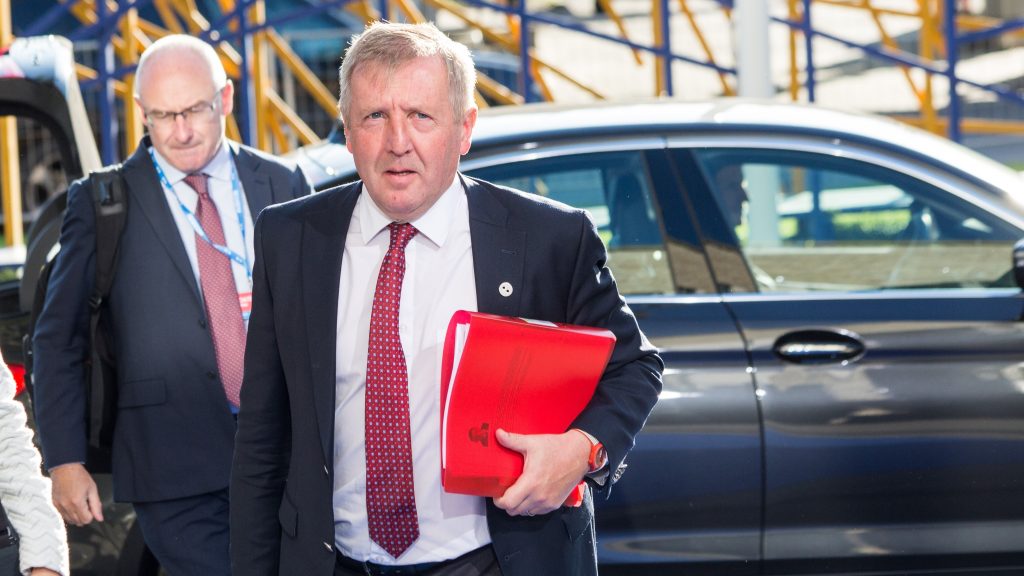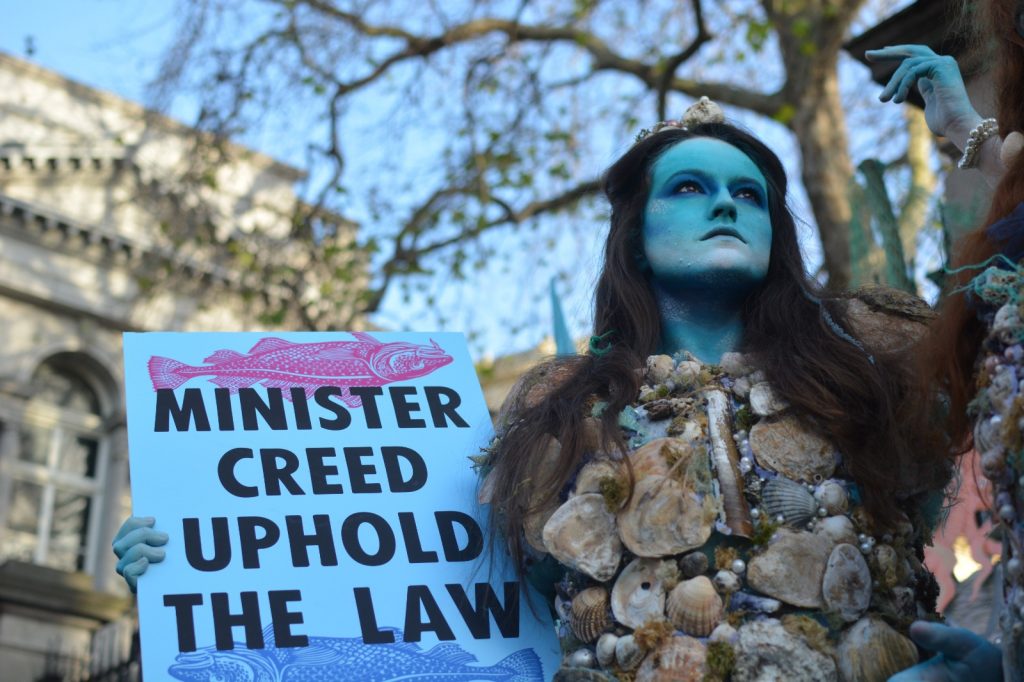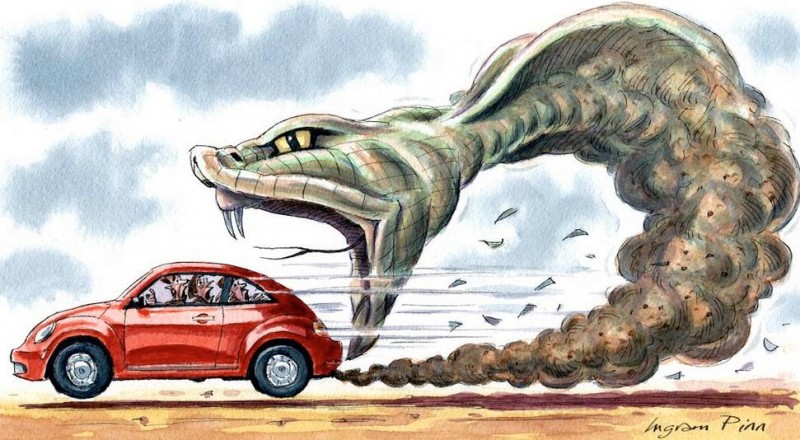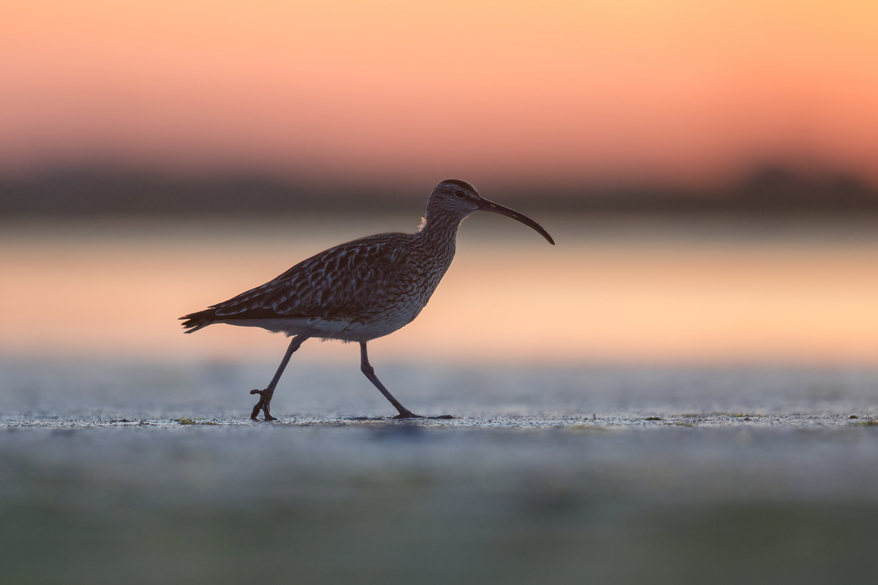Time to listen to science and end overfishing in our seas

December 9th, 2019
The industrialisation of European fisheries after World War II drove overfishing across the North Atlantic.
Overfishing has, in turn, driven the decline and collapse of many commercially important fish stocks, with predictable consequences for marine life and the impacted fishing communities.
The more unviable that fishing has become as too many vessels chase too few fish, the more pressure the industry has exerted on politicians to resist a reduction in fishing pressure, centering fisheries management around short-term profits at the expense of sustainability.
The state of affairs and the reality of overfishing was neatly summarised by the European Commission in 2009: “Fleet overcapacity, heavy subsidises, low economic resilience and decline in the volume of fish caught by European fishermen.”
In response to this crisis, the EU’s Common Fisheries Policy was reformed in 2013 during the Irish Presidency of the EU to reflect the will of citizens and the overwhelming scientific evidence that European fisheries policy needed radical reform and that overfishing must end.
Any failure to do so would have grave consequences for the fishing industry, the environment, and the food supply chain and an initial deadline was set to end overfishing by 2015 where possible, with a final deadline of 2020 for annual catch limits to be set in line with scientific advice.
In the interim, some progress has been made at tackling the scale of overfishing across the North East Atlantic, resulting in a 36 per cent increase in the total mass of commercially exploited fish populations between 2003 and 2017.
Progress overall, however, has been too slow and has stagnated, with the proportion of overexploited stocks remaining close to 40 per cent. Likewise, the proportion of stocks outside the safe biological limits remains at 35 per cent. In some regions such as the Baltic Sea and Celtic Sea, progress has even gone backward in recent years.
Having missed the 2015 deadline, the EU is still not on course to make the final 2020 deadline, with 41 per cent of the catch limits agreed for 2019 exceeding scientific advice.
So why has so little progress been made, especially when an end to overfishing could generate almost five billion in profit annually for the fishing industry in the NE Atlantic and thousands of new jobs in Ireland?

The main drivers of overfishing
According to the New Economics Foundation (NEF), a group that has analysed the annual EU fisheries negotiations since 2001, Member States are the “main drivers of overfishing”, actively pushing for fishing limits to be set above scientific advice or failing to prevent it.
NEF’s analysis of the negotiations between 2001 and 2018 shows that the proportion of stocks with catch limits set above advice has shown little improvement as states such as Ireland refuse to accept the need to reduce short-term fishing levels to restore stocks to healthy levels in the medium term.
According to NEF, our Government has been one of the worst offenders in the EU in driving overfishing, consistently ranked in the top three nations over the last four years for the percentage of quotas set above scientific advice.
This negative view of Ireland’s role in the negotiations is supported by the findings of a new report by the non-profit environmental law organisation ClientEarth.
Its analysis of European Commission files on fisheries negotiations in the last three years identifies Ireland as being among the top four Member States to regularly push for catch limits above scientific advice.
Ireland holds the worst record for the maximum number of such cases, ClientEarth found, pushing for 14 stocks – 50 per cent of the cases where Ireland holds a TAC share – to be set above scientific advice in 2017 alone.

Laggard of the seas
ClientEarth also found that Ireland has the highest percentage of decisions where it successfully pushed for higher catch limits over the three years examined.
We are also the worst perpetrator, ClientEarth found, in terms of the average difference between the final agreed catch limits and the corresponding scientific advice.
BirdWatch Ireland has carried out their own analysis of Minister Creed’s position going into negotiations over the last three years that shows he has routinely argued for stocks to be overfished.
In this context, it is not surprising that more than half of the catch limits of which Ireland has a share exceeded scientific advice for each of the last three years and that we have a share of many of the least sustainably managed stocks in the region.
For many of these stocks overfishing has negatively impacted on the sustainability of the stocks, creating a situation where if the EU were to fully implement the Common Fisheries’ Policy and end overfishing in 2020, many fisheries would have to close.
This is extremely frustrating as this situation was both foreseeable and preventable, with organizations such as BirdWatch Ireland persistently reminding the Minister of the need to make progressive and incremental progress over the last five years. Instead, a huge amount of effort has been invested in maintaining the status quo of overfishing and poor monitoring and control.
If managed sustainably fish stocks can be one of our greatest renewable resources. Overfishing benefits no one least of all the coastal communities. Minister Creed must start listening to the science and ensure that Ireland’s role in next week’s quota negotiations is a positive one.
By Fintan Kelly
Fintan works with the Policy and Advocacy team of BirdWatch Ireland. He heads up their Marine Policy work on the implementation of the European Union’s Common Fisheries Policy reforms.







